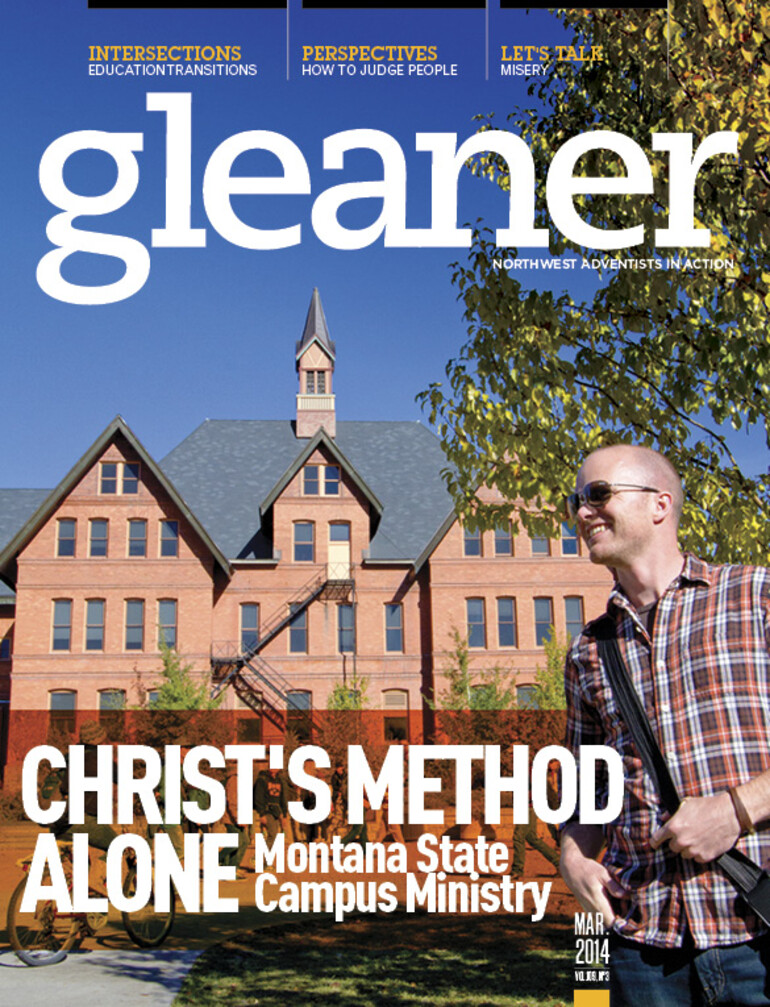“Judge not lest ye be judged” is perhaps the most popular quote among people who haven’t read the Bible.
The phrase usually appears in the heat of an argument over any number of things. Someone points out that a person’s drug use or recreational activity is dangerous, and the person in question will say, “Don’t judge me.” Recently a friend of mine had her profuse misspellings and butchery of the English language called out — resulting in an online rant featuring Matt. 7:1, “Do not judge lest you be judged.”
She misspelled most of the words in her rant.
I have watched friends critique another's ideas only to have another friend chime in with the refrain, “Do not judge … .” This leaves people confused. Is disagreeing with people judgmental? Is pointing out destructive behavior judgmental?
The words of Jesus have become the go-to trump card when someone gets too close to pointing out your foibles and inconsistencies or, heaven forbid, holding you accountable for your responsibilities. We become uncomfortable within an argument or with someone else’s view, so we grab this verse like a grenade and toss it into the mix in the hope of shaming everyone into silence while elevating us to Son of God status.
After all, we quoted His words — that makes us like Jesus, right?
Sometimes people adapt the phrase into something more pointed like, “The church and/or Christians are so judgmental.”
Well, so are you, my friend.
The fact that you label, or insinuate, someone as judgmental means that you, yourself, are judging them. In all of pop theology there is nothing that raises my blood pressure more than judgmental people misquoting Jesus as a feint to cover up their own critical spirits.
What’s more, this phrase can be every bit as condescending as “love the sinner, hate the sin” or “bless their heart.”
And, really, did Jesus tell people not to judge? What about the seldom-quoted words of Jesus, “Stop judging by mere appearances and make a right judgment” (John 7:24)? Not to mention Jesus’ affirming someone as having “judged correctly” in Luke 7:43.
The Issue
In the immediate context of Matthew 7, Jesus is completing a scathing assessment of the destructive religious practices of the day — only to have those diabolical practitioners accuse Jesus of the same thing. Those who have misunderstood the law of God have the audacity to accuse the Son of God of misrepresenting God.
Jesus accuses the religious leaders of hypocrisy in His famous Sermon on the Mount and then tells His followers to be careful not to accuse others of the thing of which they are guilty. In a sense He is asking them to make a judgment call about themselves, before they judge others — to be self-aware before you can intervene in the lives of others, like the former addict who now helps heal the addicted or the divorcee that now helps people going through divorce.
Further, coupled with the passage in John 7, we can infer that while actions certainly can fall into constructed and destructive categories we can’t always judge motive. Ellen White says that “whoever presumes to judge the motives of others is again usurping the prerogative of the Son of God.”1 She goes so far as to characterize these people as allied with the antichrist.2
So, when I see something that concerns me, I end up saying something like, "I don’t know if you are a bad person or if you’re going to heaven or hell — but I can tell you if you will end up in the hospital, in jail or alone if you keep doing what you are doing."
If people weren’t allowed to make judgments, we would cease to exist. We use judgment in everything from wearing appropriate clothes to work and driving our cars to raising kids and selecting a significant other.
You are probably judging me as you read my words.
A couple verses after Jesus’ famous judging verse He tells us, “Do not give dogs what is sacred; do not throw your pearls to pigs” (Matt. 7:6).
How do we know “dogs” and “swine” unless we exercise some kind of judgment? Even Paul admonishes Jesus' followers to judge: "For what have I to do with judging outsiders? Is it not those inside the church whom you are to judge?"3 Paul is discussing the settling of conflicts within the body of Christ.
In the next chapter he takes it even further: "Or do you not know that the saints will judge the world? And if the world is to be judged by you, are you incompetent to try trivial cases? Do you not know that we are to judge angels? How much more, then, matters pertaining to this life!"4
Did Paul forget the words of Jesus here?
Perhaps what we need is to take time to understand someone before handing him or her our judgment. How hard is it to pause and ask questions like, “What did you mean when you said …? Are you being serious?"
Ellen White says, “Christ-like love places the most favorable construction on the motives and acts of others.”5 Understand that most people with whom you disagree aren’t mean — they just differ in their view on a given subject. Don't prematurely end the dialogue (or escalate it) but throwing out the “do not judge.”
What we need are more gracious ways to dialogue and disagree instead of a premature invocation of "do not judge ... ."
Otherwise, you leave me with the burdensome task of resisting the temptation of judging you as a biblical ignoramus or, worse, a hypocrite quoting a book you haven't even read and yet presume to follow, which would be judgment in line with the biblical text.
1. Ellen White, Mount of Blessings, p. 125.
2. Ibid, p. 126.
3. 1 Cor. 5:2
4. 1 Cor. 6:1–3
5. Ellen White, Acts of the Apostles, p. 319.











